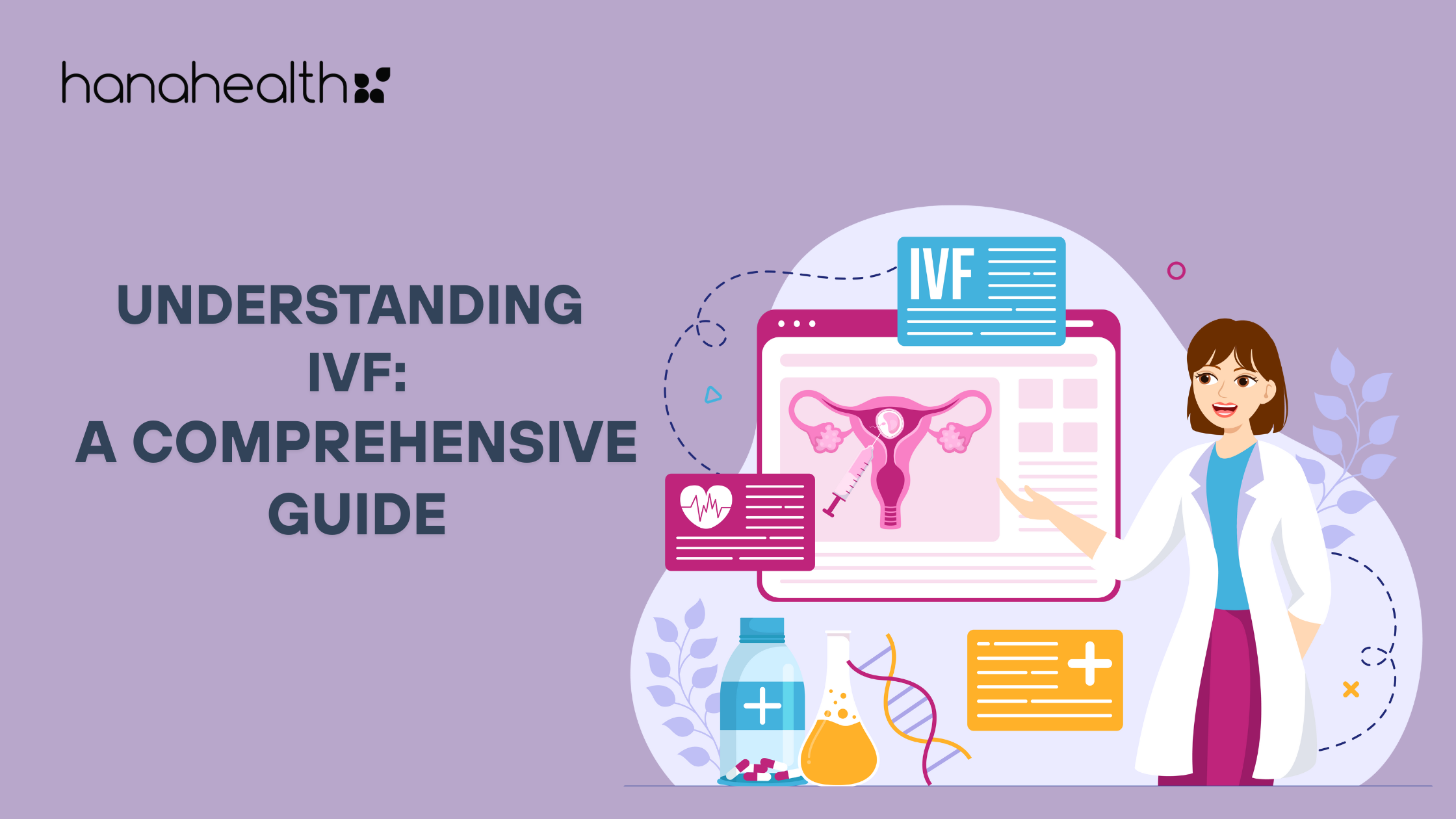
In Vitro Fertilization (IVF) is one of the most effective fertility treatments available, offering hope to couples struggling to conceive. By understanding how IVF works, who it helps, and what the process involves, you can make informed decisions about your fertility journey.
What is IVF?
IVF is a medical process in which an egg is fertilized by sperm outside the body in a laboratory setting. Once fertilized, the resulting embryo is transferred into the woman’s uterus in hopes of achieving a successful pregnancy. IVF bypasses certain fertility issues that prevent natural conception, such as blocked fallopian tubes or low sperm count.
Who is IVF For?

IVF can help individuals and couples facing a range of fertility challenges, including:
Tubal Factor Infertility: Women with blocked or damaged fallopian tubes, preventing the sperm from reaching the egg.
Ovulation Disorders: Conditions like Polycystic Ovarian Syndrome (PCOS) or hormonal imbalances that disrupt normal ovulation.
Male Factor Infertility: Men with low sperm count or poor sperm motility can benefit from techniques like Intracytoplasmic Sperm Injection (ICSI), where a single sperm is injected directly into an egg.
Endometriosis: IVF can help women with endometriosis by bypassing the abnormalities that affect the function of the ovaries or fallopian tubes.
Unexplained Infertility: Couples who have been unable to conceive despite normal fertility tests may turn to IVF for answers.
How IVF Works
The IVF process involves several stages that require careful timing and precision:
Ovarian Stimulation: Fertility medications are used to stimulate the ovaries to produce multiple eggs in a single cycle. Monitoring through blood tests and ultrasounds ensures the eggs are developing properly.
Egg Retrieval: Once the eggs are ready, they are retrieved from the ovaries through a minor surgical procedure performed under sedation. A needle is used to extract the eggs, guided by ultrasound.
Fertilization: The retrieved eggs are combined with sperm in a laboratory setting. Depending on sperm quality, traditional insemination or ICSI may be used to ensure successful fertilization. The fertilized eggs become embryos.
Embryo Transfer: After 3-5 days, the healthiest embryos are selected for transfer into the uterus using a thin catheter. This procedure is usually quick and painless.
Pregnancy Test: About two weeks after the embryo transfer, a blood test confirms whether or not the treatment was successful.
IVF Success Rates
IVF success rates depend on several factors, with age being one of the most critical. Women under 35 have about a 40-45% chance of success per cycle, but this decreases with age. The overall health of both partners, the cause of infertility, and the quality of the clinic also play a role.
Technological advancements such as preimplantation genetic testing (PGT), which screens embryos for genetic abnormalities, have improved success rates by ensuring only the healthiest embryos are selected for transfer.
Risks and Considerations
While IVF has been a breakthrough for many couples, it’s not without its challenges and risks:
Multiple Pregnancies: IVF increases the likelihood of twins or triplets, as multiple embryos are often transferred to increase the chances of success.
Ovarian Hyperstimulation Syndrome (OHSS): Some women may experience overstimulation of the ovaries due to the fertility medications, leading to swelling and discomfort. Severe cases are rare.
Emotional and Financial Strain: IVF can be both emotionally and financially taxing. Multiple cycles may be required, and the uncertainty of success can be stressful.
Conclusion
IVF is a powerful tool for overcoming infertility, but it’s important to approach the process with realistic expectations. Success depends on various factors, including age, health, and the clinic’s expertise. By understanding how IVF works and seeking the right medical support, couples can embark on this journey with confidence and hope
Undergoing In Vitro Fertilization (IVF) can be an emotional rollercoaster for couples. The hope, excitement, and anticipation of becoming parents.
Read More
Selecting the right IVF clinic is one of the most important decisions you’ll make during your fertility journey.
Read More
Embarking on the IVF journey can be overwhelming, but knowing what to expect at each stage can help you feel more prepared and in control.
Read More